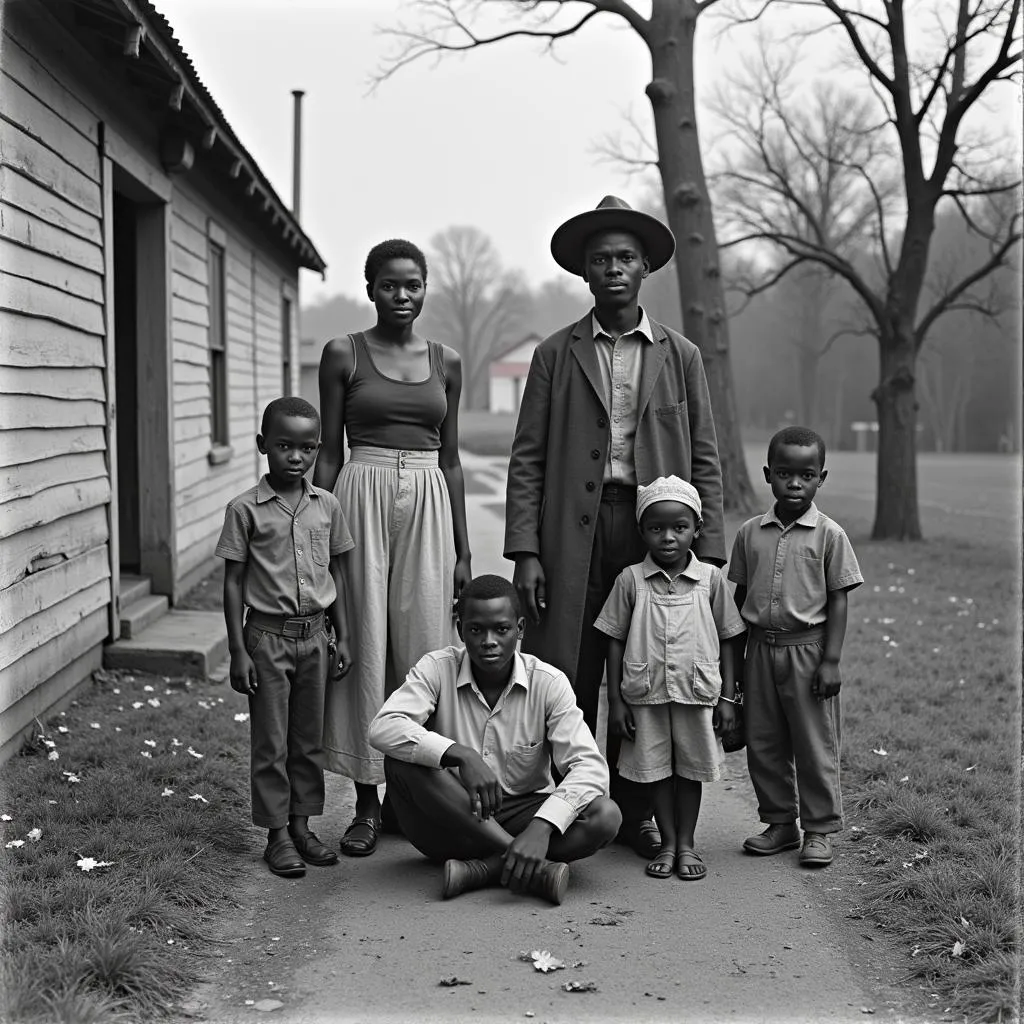African American Names of the 1800s: A Glimpse into History
African American names in the 1800s reflect a rich tapestry of cultural influences, historical events, and evolving traditions. This period, marked by the transition from slavery to freedom, witnessed a profound shift in naming practices within the African American community. Understanding the nuances of these names offers valuable insights into the lives, aspirations, and resilience of those who bore them.
Navigating the Era of Enslavement: Naming Practices and Their Significance
During the tumultuous era of slavery, the act of naming held a different weight for African Americans. Enslaved individuals were often denied the autonomy to choose their own names or maintain those given by their families. Instead, they were assigned names by their enslavers, often reflecting a lack of respect for their heritage and individuality.
These imposed names frequently fell into several distinct categories:
- Biblical Names: Names like Abraham, Isaac, Jacob, Sarah, and Rebecca were prevalent, reflecting the influence of Christianity within the plantation system.
- Anglo-Saxon Names: Common English names such as William, John, Mary, and Elizabeth were frequently given, signifying ownership and control.
- Classical Names: Inspired by Greek and Roman history and literature, names like Julius, Augustus, Cornelia, and Lucretia were used, perhaps in an attempt to emulate perceived sophistication or grandeur.
These naming practices, while seemingly arbitrary, served as a tool of dehumanization and control. They stripped enslaved individuals of their cultural identities and reinforced their subordinate status within the prevailing power structure.
 African American family on a cotton plantation in the 1800s
African American family on a cotton plantation in the 1800s
The Dawn of Emancipation: Reclaiming Identity Through Naming
With the advent of emancipation, African Americans embarked on a journey of reclaiming their agency and forging a new sense of self. This newfound freedom extended to the realm of naming, as individuals and families sought to shed the vestiges of slavery and embrace names that resonated with their heritage, aspirations, and newfound liberty.
- Adopting Surnames: A significant shift was the adoption of surnames. Previously denied this right, newly freed individuals chose names that reflected family ties, places of origin, or admired figures. This act symbolized their independence and the formation of lasting legacies.
- Embracing Biblical Inspiration: While biblical names continued to be popular, they were often imbued with different meanings. Names like Moses, Daniel, and Esther took on new significance, representing hope, resilience, and deliverance from oppression.
- Honoring African Roots: Some individuals and families sought to reconnect with their African heritage through their names. While accurate records were often lost during the transatlantic slave trade, names like Kofi, Abeni, and Chinara emerged, reflecting a desire to honor ancestral connections.
This period marked a turning point in African American naming practices. It signified a powerful rejection of the dehumanizing system of slavery and a conscious effort to reclaim identity and forge a new path forward.
 African American family reading the Emancipation Proclamation
African American family reading the Emancipation Proclamation
The Enduring Legacy: Names as Threads of History and Identity
African American names from the 1800s continue to resonate in the present day. They serve as a testament to the struggles, triumphs, and enduring spirit of those who lived through this pivotal era. By delving into the historical context and cultural influences that shaped these names, we gain a deeper understanding of African American history and the complexities of identity formation.
Today, many of these names remain popular choices, passed down through generations as cherished links to the past. They carry within them the stories of ancestors who navigated a turbulent chapter in American history, their resilience and determination echoing through time.
Frequently Asked Questions about African American Names in the 1800s:
1. Why were enslaved Africans given biblical names?
Enslavers often used biblical names as a way to impose their religious beliefs and exert control over the enslaved population.
2. Did all African Americans change their names after emancipation?
Not everyone chose to change their names. Some may have kept the names given to them, while others adopted new ones to signify their freedom and reclaim their identity.
3. How did the transatlantic slave trade impact African naming practices in America?
The forced separation of families and loss of records during the slave trade made it difficult for many African Americans to trace their ancestral lineages and retain traditional naming practices.
4. Are there resources available to research African American genealogy and naming traditions?
Yes, various online databases, historical societies, and genealogical organizations offer resources and support for individuals researching their African American ancestry.
5. How do African American names from the 1800s continue to shape naming trends today?
Many names from this era, particularly those with biblical or historical significance, continue to be popular choices, reflecting both cultural continuity and an appreciation for ancestral heritage.
By exploring the history and significance of African American names from the 1800s, we gain a profound appreciation for the resilience, cultural richness, and enduring legacy of this community. These names serve as powerful reminders of the past, offering valuable insights into the lives and experiences of those who came before us.

